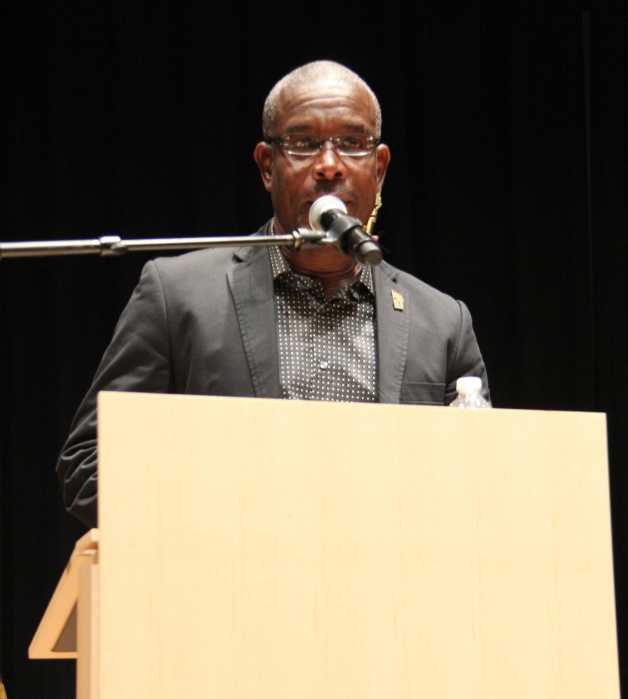WASHINGTON (AP) — A House panel denied Rep. Charles Rangel’s plea Monday for a delay in his ethics trial until he could get a lawyer.
A panel of four Democrats and four Republicans declined his request after a closed session and the proceeding — rare in the annals of the House — went forward without the 20-term congressman’s presence.
Several members of the committee angrily criticized Rangel’s lawyers for leaving the case just weeks before the hearing.
Vermont Democratic Rep. Peter Welch said that no law firm should be “taking the money…and kicking their client by the side of the road.” The committee’s chief counsel, Blake Chisam, then read aloud the 13 charges of alleged financial and fundraising wrongdoing that have been brought against the 80-year-old Democrat from New York’s Harlem district.
In imploring the ethics panel to continue the proceedings, Rangel had said earlier Monday that “50 years of public service is on the line.”
In his statement, Rangel said he had run out of money to pay his previous attorney after spending nearly $2 million. The silver-haired congressman then left the proceedings and his eight colleagues adjourned briefly to closed session to consider — and then deny — his request for a continuance.
Rangel had insisted he wouldn’t attend any further hearings without legal representation. And in fact, he passed on the opportunity to respond to a summation of the charges by Welch to the panelists. The committee counsel, acting as prosecutor, said the charges were “ripe” for consideration.
Rangel has been accused in 13 House counts of financial and fundraising misconduct that violated the chamber’s rules.
The panel was sitting as a jury in a House committee room for a proceeding that was open to the public. It was only the second time this type of hearing was held under a revamped system of in-house ethics policing adopted by lawmakers two decades ago.
If the panel finds that Rangel broke the rules, the House ethics committee could recommend that the House vote to condemn Rangel’s conduct.
“My family has caught hell” in the investigation that has lasted 2½ years, Rangel said.
The congressman said his lawyers had indicated to him that it could cost another $1 million to defend him at the ethics proceeding. He said it’s unfair to continue the trial without allowing him to obtain an attorney.
The ethics committee chairman, Zoe Lofgren, D-Calif., had told Rangel that the panel might not have time to judge his conduct before this Congress adjourns. A postelection lame duck session commenced on Monday.
Rangel said that his fate should not depend on the congressional calendar, but on fairness.
“I am being denied the right to have a lawyer right now, because I don’t have the opportunity to have a legal defense fund set up,” he said.
“I truly believe I am not being treated fairly,” Rangel said.
The ethics investigation goes back to at least July 2008. Only former Rep. James Traficant, D-Ohio, who was expelled from the House after a criminal conviction, has faced a similar trial since current House ethics procedures were adopted two decades ago.
Key charges portray Rangel as a veteran congressman who thought he could ignore rules on disclosing his assets, and improperly used official resources to raise money for a college center that was a monument to his career.
But an allegation that caught the public’s eye was his failure to declare rental income to the IRS from a resort unit he owned in the Dominican Republic.
The case has generated its share of political game-playing. Republicans on the House ethics committee demanded that the proceeding be held before the election, when the trial of the House’s fourth-most-senior member could have embarrassed Democrats. Lofgren rejected the request.
Rangel has acknowledged ethical lapses, but he has argued that he did not intend to break the rules.
The charges allege violations of:
—A House gift ban and restrictions on solicitations. Rangel is accused of using congressional staff, letterhead and workspace to seek donations for the Charles B. Rangel Center for Public Service at the City College of New York. The requests usually went to charitable arms of businesses with issues before Congress, including Rangel’s Ways and Means Committee.
—A U.S. government code of ethics. Several allegations fall under this code, among them: Accepting favors (the Rangel Center donations) that could be construed as influencing Rangel’s congressional duties; acceptance of a rent-subsidized New York apartment used as a campaign office, when the lease said it was for residential use only; and failure to report taxable income.
—The Ethics in Government Act and a companion House rule requiring “full and complete” public reports of a congressman’s income, assets and liabilities each year. Rangel is charged with a pattern of submitting incomplete and inaccurate disclosure statements. He only filed amended reports covering 1998 to 2007 after the investigative ethics panel began looking into his disclosures. He belatedly reported at least $600,000 in assets.

























